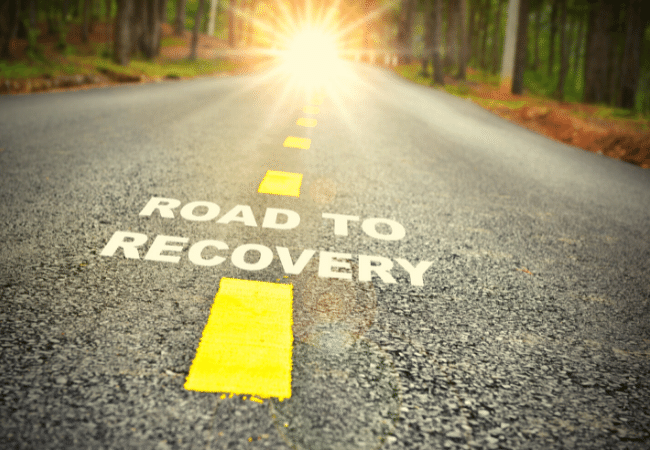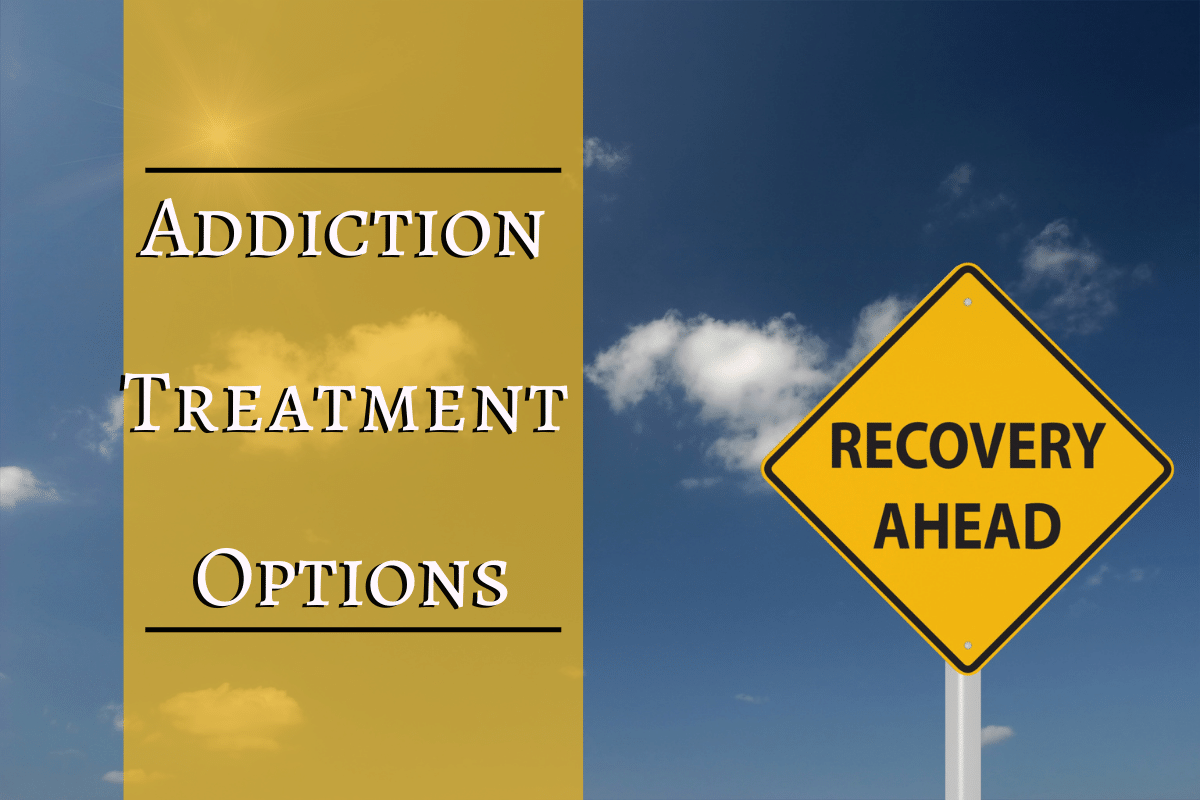Recognizing substance dependence is the first step to recovery for many people. Next, they need to find a treatment program that will help them recover their health, happiness, and well-being.
There are many treatment options available. Some people who have severe addictions choose to enter a detox program before they can transition into rehabilitation. Some may opt to start their recovery in an outpatient or inpatient facility. It is recommended that you continue to reinforce the lessons from rehab by attending support groups or therapy sessions.
There is no one-size-fits-all approach to addiction recovery. No matter which treatment option you choose, you can be certain that it will provide everything you need for a successful recovery.
It is not easy to overcome an addiction. To achieve and keep sobriety for the long term, will require a lot of willpower and self-discipline. You’re not alone in this journey.
You’ll develop strong relationships with other people in recovery who can relate to your struggles during rehab. During this time, your family, friends, or other loved ones will be there for you.
How much effort you put into recovery from addiction will determine how successful it is. To better understand the consequences of addiction, you can see how it is dealt with below.

Different types of treatment
Each person is different and treatment programs can be tailored to suit their individual needs. The best treatment programs involve the entire recovery process.
- Inpatient Rehab:
Inpatient rehabs provide structured programs that address all aspects of an individual’s addiction. Inpatient rehab allows patients to reside in a drug-free environment and receive round-the-clock medical and therapeutic support. Inpatient rehab can be a great option for those who are suffering from chronic addiction or a co-occurring mental disorder.
- Outpatient Rehab:
Another form of comprehensive addiction treatment is outpatient rehab. These programs provide many of the same effective therapies and treatments as inpatient rehabs. Outpatient rehabs allow patients the opportunity to remain at home while they recover. Patients can work and care for their families, while still attending treatment sessions during the week. Keep in mind that outpatient rehabs don’t isolate patients from the outside world. Patients are more likely to encounter triggers that could challenge their sobriety. Outpatient rehabs can be used for people with mild addictions and those who have a disciplined, committed approach to their recovery. Outpatient programs can also be used as a “step down” program following inpatient treatment. They are often combined with sober housing homes.
- Detoxification:
The detoxification process allows people to safely stop using drugs and alcohol until they are completely free of them. This is often the first step to treating people suffering from severe or moderate addiction. Sometimes, medication-assisted treatment is required to ease withdrawal symptoms. The patient will often be tapered off any prescribed medications during detox until they are no longer dependent on the addictive substance.
- Sober Living Homes:
Sober living homes are a bridge between inpatient treatment and normal life. This is a great option for those in recovery who require additional support to reinforce what they have learned in rehab. People in recovery can benefit from sober living homes, which allow them to develop healthy new habits and still live in a structured environment.
- Addiction Treatment Medications:
Patients may be given medications during detox or treatment to aid in the healing process. These medications can be used to manage withdrawal symptoms, reduce cravings or treat co-occurring conditions. The best results from medication for addiction treatment are achieved when they are used in conjunction with a comprehensive treatment plan.
- How to Stage an Intervention:
An intervention is a meeting between loved ones and someone suffering from addiction. It is usually supervised by an intervention specialist. An intervention helps loved ones to express their feelings constructively and encourages a person struggling with addiction to enroll in treatment programs.
- Faith-Based Treatment:
Some people choose a more spiritual approach for their recovery. Faith-based rehab centers offer specialized programs and facilities that are centered around faith. This type of rehabilitation program allows people in recovery to surround themselves with others who share the same faith and are seeking guidance from a higher power to be strong for their future.
Rehabilitation
Dr. Ashish Bhatt MD explains that aftercare can be a key component in preventing relapses and ensuring long-term recovery.
Therapies
The treatment of addiction is based on the individual’s health and their substance abuse patterns. An array of group and individual therapy sessions are available, usually organized by addiction counselors.
- Biofeedback Therapy:
Biofeedback, a non-drug therapy that aids people in recovering from addiction, is a method of helping them understand their bodies’ involuntary processes. A therapist will place electronic sensors on the skin of a patient to monitor brain activity during a biofeedback session. The therapist will review brain wave patterns and recommend psychological techniques to overcome addictions.
- Cognitive Behavioral Therapy:
Cognitive-behavioral Therapy (CBT), is used to help individuals in recovery identify problematic thoughts and feelings that could compromise their sobriety, or lead to a relapse. This therapy can also be used to treat co-occurring conditions such as bipolar disorder.
- Dialectical Behavior Therapy:
Dialectical behavioral therapy (DBT) is used to treat severe mental disorders such as obsessive-compulsive disorder. It can also be combined with a substance abuse disorder. This therapy is designed to increase self-esteem, and stress management skills and help individuals in recovery eliminate triggers from their lives.
- Experiential Therapy:
Experiential therapy uses non-traditional methods to help addicts overcome the repressed emotions and feelings that may have led to their addiction. This therapy is often used for outdoor recreation activities like rock climbing.
- Holistic Therapy:
Holistic therapy focuses on the individual’s overall well-being. Withdrawal symptoms are also addressed. Holistic therapies can include yoga, acupuncture and art therapy.
- Motivational Enhancement Therapy:
Motivational enhancement therapy (MET), which is used to assist individuals in recovery, teaches them how to overcome any negative thoughts or behaviors that are associated with their addiction. This therapy is often used for people who are in recovery from substance abuse and have co-occurring disorders, such as bipolar disorder or post-traumatic stress disorder (PTSD).
- Psychodynamic Therapy:
Psychodynamic therapy allows individuals to explore their emotions and discover how their subconscious thoughts are related to their addiction. This allows you to determine the root cause of your substance abuse. Individuals will be able to recognize and avoid temptations if they work closely with therapists.

Support groups
It is highly recommended that patients join a support group after completing an addiction treatment program. Once you have finished treatment, support groups can help you stay on the right path to recovery. They also allow for ongoing care and guidance after rehabilitation. Support groups are a great way to get support and encouragement during your recovery.
Many support groups cater to certain substances and/or demographics. The right group will provide a supportive community that encourages and motivates each other to keep sobriety a priority.
- 12-Step Programs:
The 12-step program is the best way to recover from addiction. These programs are based on the 12-step model of addiction and the 12 traditions that were established by Alcoholics Anonymous founders. Many people find the programs extremely helpful in their recovery because they allow them to adapt the steps to suit their needs. Narcotics Anonymous and Alcoholics Anonymous are the most well-known 12-step programs.
- Alcoholics Anonymous:
Alcoholics Anonymous (AA), meetings offer a way for people to talk to each other about alcohol addiction and how it has impacted them. Most meetings of AA are held in a local setting such as a church, community building or church. While open meetings allow family members and loved ones to attend, closed meetings are for those who are in recovery.
- Narcotics Anonymous:
Narcotics Anonymous (NA), a support group that is similar to Alcoholics Anonymous, provides support and guidance for people who have an addiction to drugs. NA members encourage each other to keep sobriety in mind and to avoid falling back into old patterns of abuse. People share their stories of recovery and addiction at meetings.
- SMART Recovery:
SMART Recovery is an alternative to 12-step support groups. This program teaches recovering addicts how to manage their addictive behavior by dealing with the underlying thoughts, feelings and emotions that are associated with substance abuse. The “4-Point Program” is the basis of SMART Recovery. It has stages that can all be completed in any order.
- Al-Anon/Nar-Anon:
Al-Anon or Nar-Anon support groups are for family members and friends of people who have an addiction to drugs or alcohol. These support groups are designed to help loved ones realize that they’re not alone in their struggles. Al-Anon, Nar-Anon, and Nar-Anon stress addiction as a family disease and offer loved ones effective communication and coping methods.
- Addiction counselors:
A counselor for addiction is there to offer support and guidance to individuals who are undergoing treatment. Counselors develop a treatment plan and provide aftercare. They also conduct individual or group therapy sessions.

Get Treatment
Many medications and therapies can help you get through every stage of your recovery. There is also plenty of psychosocial support. This means that there are many people like you, who are willing to listen and offer a helping hand to anyone in need.
The only thing left is to decide to improve your life.

